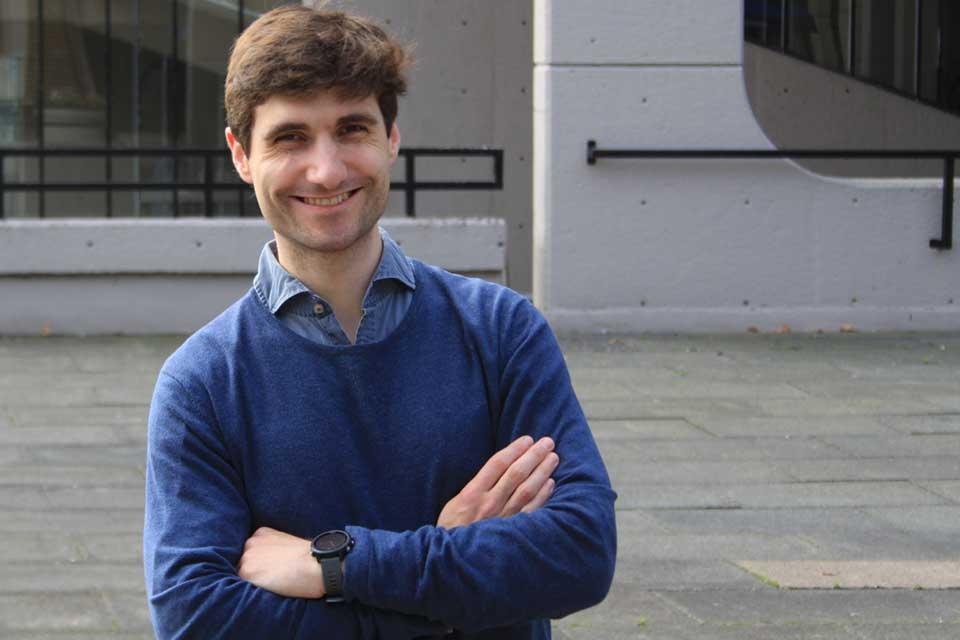Peter Drmota has been awarded a University of Oxford EPSRC Doctoral Prize for his work on ion trap computing. EPSRC Doctoral Prizes allow universities to recognise the best doctoral students; recipients receive EPSRC support for up to two years to increase the impact of their doctorate.
Peter is supervised by Professor David Lucas whose ion trap computing group is part of the national Quantum Computing and Simulation hub, a multi-institutional hub led by the Department of Physics at the University of Oxford.
As a DPhil student, Peter has worked on a two-node quantum network using trapped atomic ions and single photons. This system has been designed to generate entanglement between two individual strontium ions separated by several metres, to realise a network of quantum computers via an optical fibre link. As part of his DPhil, Peter was responsible for the integration of a robust memory qubit in co-trapped calcium ions into the network. The ability to store and process entanglement in a quantum network node is vital for building quantum repeaters and distributed quantum computers, for performing entanglement-enhanced metrology, and for universal blind quantum computing (UBQC): recently, Peter led the first demonstration of deterministic and verifiable UBQC, in a collaboration with Professor Elham Kashefi, chief scientist at the UK’s new £90 million National Quantum Computing Centre.
‘This prize, of course, means a lot to me,’ comments Peter. ‘It means that my work is being recognised – and having the financial means to carry out experiments that I have wished to pursue for a long time is truly amazing. This prize will allow me to go beyond the initial demonstration of UBQC and delegate more complex quantum computations that can also be verified. This part of my proposal is enabled by Professor Kashefi who is kindly matching the funding provided by the EPSRC through the Quantum Software workpackage of QCS Hub.’

